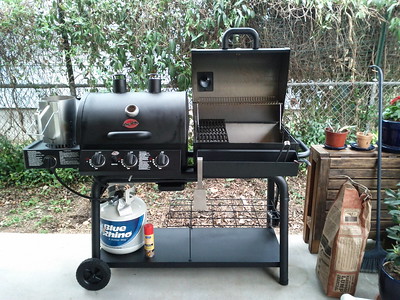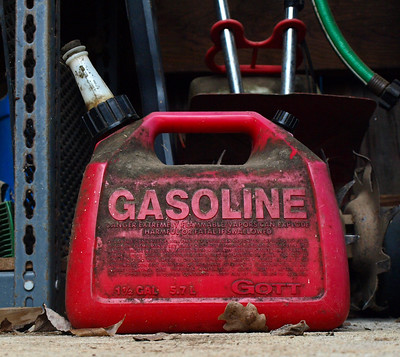
Propane and butane are two different types of fuels that have different chemical properties and burn at different pressures. Propane is a three-carbon alkane with the chemical formula C3H8, while butane is a four-carbon alkane with the chemical formula C4H10. Propane is commonly used for heating, cooking, and powering appliances, while butane is often used for portable stoves and camping cookware.
Many people wonder if they can use butane in a propane barbecue, or vice versa. The answer is that while it is technically possible to use one fuel in a grill designed for the other, it is not recommended and can be dangerous. This is because propane and butane burn at different pressures, which can cause problems if the wrong fuel is used in a grill.
Using butane in a propane barbecue requires a conversion kit that is specifically designed for that purpose. The conversion kit will typically include a regulator that adjusts the pressure of the fuel to match the pressure required by the grill. It may also include other parts, such as a new burner or jets, to ensure that the grill functions properly with the new fuel.
However, it is important to note that converting a propane barbecue to run on butane may void the manufacturer’s warranty and could potentially cause safety issues. The use of the wrong fuel can result in a fire or explosion, so it is recommended to consult with a professional before attempting to make any modifications to your grill.
In addition to safety concerns, there are also performance issues to consider when using the wrong fuel in a grill. Propane and butane have different heating values, which means that using the wrong fuel can affect the heat output of the grill. For example, if you use butane in a propane barbecue, the heat output may be lower than what you would expect from a propane grill. This can affect the cooking time and the overall quality of the food.
| Items | Price |
|---|---|
 |
|
    |
|
    |
Will a Propane Grill Run with Butane And Vice Versa?
In general, a propane barbecue will not work with butane and vice versa. This is because propane and butane have different properties that affect the way they burn.
Propane has a lower boiling point than butane, which means it can turn from a liquid to a gas more easily. Propane also has a higher pressure than butane, which allows it to flow through the gas lines in a propane barbecue more effectively.
Conversely, butane has a higher boiling point than propane, which means it requires more heat to turn it from a liquid to a gas. Butane also has a lower pressure than propane, which can make it more difficult to flow through the gas lines in a propane barbecue.
Using the wrong type of fuel in your barbecue can cause damage to the burners, regulator, and hoses. It can also be dangerous and lead to gas leaks or fires.
It’s important to always use the recommended fuel type for your barbecue, as specified in the manufacturer’s instructions. If you’re not sure what type of fuel your barbecue requires, you can usually find this information on the label or in the user manual.
Should I Use Propane or Butane for BBQ?
When it comes to choosing between propane or butane for a BBQ, there are several factors to consider. Here are some things to keep in mind:
- Availability: Propane is generally more widely available than butane, so it may be easier to find propane refills or exchanges for your BBQ tank.
- Temperature: Propane burns hotter than butane, so if you want to sear your meat or cook it quickly, propane may be a better choice. However, if you prefer to cook your food at lower temperatures for longer periods of time, butane may be a better option.
- Weather conditions: Butane may not perform as well in colder temperatures, as it has a lower boiling point than propane. If you live in a colder climate, propane may be a better choice for your BBQ.
- Portability: If you plan to take your BBQ with you on camping trips or picnics, a butane canister may be easier to transport than a propane tank. Butane is commonly used for portable stoves and camping cookware, so it may be a more convenient option for outdoor cooking.
- Cost: The cost of propane and butane can vary depending on your location and the availability of each fuel. It’s worth comparing prices to see which one is more cost-effective for your needs.
Ultimately, the choice between propane and butane for your BBQ comes down to personal preference and the factors that are most important to you. Both fuels can provide excellent results when used properly, so it’s up to you to decide which one is the best fit for your BBQ setup.
How Do Propane and Butane Grills Differ?
| Propane Grills | Butane Grills | |
|---|---|---|
| Fuel Source | Propane gas tank | Butane gas canister |
| Availability | Widely available | May be less widely available |
| Heat Output | Higher heat output, making it better for high-temperature cooking | Lower heat output, better for low and slow cooking |
| Cold Weather Performance | Performs well in cold weather | May struggle in cold weather due to a lower boiling point |
| Portability | Tanks can be heavy and bulky, but can be refilled or exchanged easily | Canisters are lightweight and portable, but may need to be replaced more frequently |
| Cost | Can be more expensive than butane | Can be less expensive than propane |
Tips for Using a Gas Grill Safely
Using a propane or butane grill can be a great way to enjoy outdoor cooking with friends and family, but it’s important to follow some basic safety tips to ensure that you and your loved ones stay safe.
- Read the Manual: Before using your grill for the first time, read the manufacturer’s instructions carefully. This will help you understand how to use the grill properly, including how to connect the propane or butane tank, how to light the grill, and how to adjust the temperature.
- Check for Leaks: Before using your grill, check all the gas connections for leaks. You can do this by applying a soap and water solution to the connections and looking for bubbles. If you see any bubbles, turn off the gas and tighten the connections.
- Use the Grill Outdoors: Never use a propane or butane grill indoors or in an enclosed space. This can lead to a dangerous buildup of carbon monoxide, which can cause carbon monoxide poisoning.
- Keep the Grill Clean: Regularly clean your grill to prevent grease buildup, which can cause fires. Use a wire brush to clean the grates, and wipe down the exterior of the grill with a damp cloth.
- Keep a Fire Extinguisher Nearby: In case of a fire, keep a fire extinguisher nearby. Make sure that you know how to use it and that it’s charged and in good working condition.
- Be Mindful of Clothing: Avoid wearing loose clothing or dangling jewelry while using your grill. These items can get caught in the grill and cause injuries.
- Monitor the Grill: Always keep an eye on the grill while it’s in use. Don’t leave it unattended, and keep children and pets away from the grill.
By following these tips, you can safely enjoy the benefits of outdoor cooking with your propane or butane grill.
To Make a Finalization
While propane and butane are similar fuels, they cannot be used interchangeably in most cases. While it may be possible to use propane in a butane grill or vice versa, it’s not recommended as doing so can be dangerous and potentially cause damage to the grill. It’s best to use the fuel that is recommended by the manufacturer for your specific grill. By following this advice, you can enjoy safe and successful outdoor cooking experiences with your propane or butane grill.
To sum up, using the wrong type of fuel in your barbecue grill can be dangerous, and it’s important to always use the recommended fuel for your grill. While propane and butane are both popular fuels for outdoor grilling, they have different properties that make them suitable for different types of grills. Propane burns hotter and is better suited for larger grills, while butane is more efficient and better suited for smaller grills.
Attempting to use propane in a butane grill, or vice versa, can lead to problems such as inconsistent heating, damage to the grill, or even a dangerous gas leak. It’s always best to check the manufacturer’s instructions to determine the correct fuel type for your grill, and to never attempt to use a different fuel without consulting the manufacturer or a professional.
By following the recommended safety tips and using the correct fuel for your grill, you can ensure a safe and enjoyable outdoor cooking experience with your propane or butane barbecue grill.


Mike is an experienced propane technician with over 15 years of professional experience in the field. He has dedicated his career to helping customers with their propane needs, from installation to maintenance and repair. Together with Jeremy, he co-founded this website to provide useful information and guidance to customers seeking reliable propane services.






